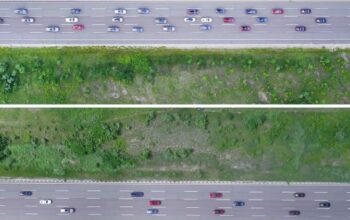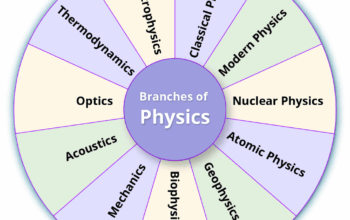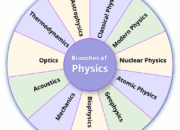In the grand tapestry of existence, the delicate interplay between chance and necessity emerges as a poignant theme, one that resonates through both the realms of physics and philosophy. This intricate relationship epitomizes the human quest for understanding, serving as a bridge between the empirical rigor of the scientific method and the abstract musings of philosophical contemplation. Through an exploration of this intersection, we discover how both domains seek to illuminate the fundamental nature of reality, albeit from markedly different vantage points.
At the heart of this discourse lies the principle of determinism, which posits that every event or state of affairs, including human actions, is determined by preceding events in accordance with the laws of nature. This deterministic framework, reminiscent of a well-tuned clock, suggests a universe governed by causality and predictability. Within the realm of classical physics, this notion finds stark reaffirmation in Newtonian mechanics, where the trajectory of a projectile can be accurately forecasted given initial conditions and the governing equations of motion. Here, the cosmos appears as a grand mechanism, each component inextricably linked and functioning according to a predetermined script.
However, the advent of quantum mechanics heralded a paradigm shift, unearthing the elusive nature of chance. In this quantum arena, particles exhibit probabilistic behavior, leading to phenomena such as superposition and entanglement, where outcomes appear intrinsically uncertain until measured. The famous thought experiment involving Schrödinger’s cat illustrates this fascinating dilemma: a cat, placed in a sealed box with a radioactive atom, remains simultaneously alive and dead until an observer opens the box. This paradox does not merely challenge our intuitions about reality; rather, it serves as a compelling metaphor for the precarious balance between chance and necessity in the quantum world.
Furthermore, this tension between determinism and chance invites philosophical inquiry into the nature of free will. Are our actions merely the products of a complex interplay of particles, governed by the implacable laws of physics? Or do we possess the agency to shape our futures, transcending the deterministic chains that bind us? Notable philosophers such as Friedrich Nietzsche and Jean-Paul Sartre have grappled with this conundrum, positing that in a universe devoid of absolute determinism, individuals must forge their own paths, embracing the inherent chaos of existence. This existentialist perspective champions personal responsibility and the conscious navigation of life’s uncertainties, positing that within the randomness, one can find authentic meaning.
As we delve deeper into this philosophical quagmire, the concept of chance emerges not merely as a whimsical twist of fate, but as a critical element that fosters creativity and innovation. Consider the field of evolutionary biology, where chance occurrences such as genetic mutations drive diversity within populations. The synthesis of random mutations with the deterministic processes of natural selection elucidates how life, in all its complexity, arises from the interplay of necessity and chance. This dynamic coalescence generates a vibrant ecological tapestry, perpetuating a cycle of adaptation that is both stochastic and purposeful.
Similarly, in the domain of scientific discovery, serendipity often plays a pivotal role. Iconic breakthroughs, from penicillin to the microwave oven, emerged from unexpected observations or experiments gone awry. Thus, the scientific endeavor is imbued with an undercurrent of chance, where chance encounters can catapult humanity towards newfound realms of knowledge. This acknowledgment of the unpredictable serves to underscore the limitations of a purely deterministic worldview, highlighting the necessity of fostering a mindset that embraces uncertainty and flexibility in the face of the unknown.
The synthesis of chance and necessity yields a nuanced understanding of causality, one that transcends the binary dichotomy of determinism versus randomness. Such an approach aligns with contemporary philosophical theories, such as process philosophy, which advocates for a view of reality as an ever-evolving tapestry, where both chance encounters and deterministic sequences contribute to the unfolding narrative of existence. This perspective emphasizes relationality, acknowledging that entities do not exist in isolation but are perpetually influenced by their interactions within a web of cause and effect.
Moreover, this philosophical engagement with chance and necessity invites a reevaluation of our place within the cosmos. If human existence is a fleeting convergence of chance events, then the meaning we extract from life must be tethered to our conscious engagement with the present. By recognizing our agency in navigating the complexity of existence, we become architects of our own destinies, capable of cultivating a life imbued with intention and significance amid the chaos that surrounds us.
In conclusion, the interplay between chance and necessity offers fertile ground for inquiry at the confluence of physics and philosophy. These disciplines, while distinct in their methodologies, converge upon a shared goal: to elucidate the nature of reality in its many forms. The embrace of both chance and necessity reveals a textured understanding of the universe, one that extends beyond mere mechanics to encompass the richness of human experience. Ultimately, it is within this intricate dance between the predictable and the unpredictable that one may uncover the profound beauty and complexity that defines existence itself.










